
9 minute read
To Be Safe, Happy, and Engaged
A SCIENCE CURRICULUM FOR THE FUTURE Continuing a Legacy of Multiuse Land Management and Student Engagement
By Lynne Bartlett P’25, Science Department, Wildlife Ecology
Advertisement
I arrived at Proctor in the spring of 2000 as an intern, just in time for the maple sugaring project period with Dave Pilla and a group of enthusiastic students. I had just graduated from the University of Idaho College of Natural Resources. I believed I knew quite a bit about sustainability, land use, and timber management, but I gained the equivalent of a second degree through Dave’s mentorship! Like so many, Dave took me under his wing. Whether it was riding in the Forestry Truck, stacking wood with Woods Team, investigating a tree stand or dinner with Terry and Kai at their home, there was always something new to learn!
Dave managed Proctor’s forest resources through three distinct, yet interwoven lenses: wildlife habitat, forest and plant health, and human use and recreation. Every decision was made with those three groups in mind because “mixed forest use” is our reality here in New Hampshire; hunters, foresters, hikers, campers, conservationists and others need to cohabitate.
Dave inherently knew that learning needed to be interactive, so he introduced students to his vast network of friends and contacts for off-site and on campus visits. He would engage local wildlife biologists, timber managers, New Hampshire Fish and Game Officers, large scale maple sugar producers, and local sawmill operators. Dave made the woods and the outdoors a place for people to engage and feel comfortable no matter their background. He introduced me to forester Jack Bronnenberg, whose motto “to do the best thing by the forest, the environment, and my client” matched both Proctor’s and Dave’s core values.
As a forest scientist, Laura Ostrowsky’s work over the last three years to engage students in the process of scientific data gathering has been transformational. Laura continued Dave’s legacy of students’ familiarity of tree species, threats like beech bark disease, and carbon sequestration. Laura’s students were contributing to graduate level forest research that would make her alma mater, The Yale School of Forestry, extremely proud.
Our charge is to continue to bring the Proctor Forest and Natural Resources into sharper focus for Proctor students. The Woodlands Building allows us to bring more students closer to the important work Dave, Laura, and others have done before us. The north-facing doors open straight towards the diverse “edge habitat,” where the forest meets the field. The greenhouse attached to the new structure will provide possibilities for every science discipline and the community as a whole. Is there anything more “Proctor like” than outdoor, hands-on coursework and getting our hands dirty?
Science Courses Offered: Anatomy and Physiology AP Biology AP Environmental Science Biology (Honors and Regular) Biology (Cellular and Environmental) Botony Chemistry (Honors and Regular) Climate Science College Physics and Calculus (Honors) Conservation Ecology
Epidemiology
Forensics Forest Ecology Research Design (Honors)
Forest Science
Forestry Neuroscience (Honors) Organic Chemistry (Honors) Physics (Honors and Regular)
Wildlife Science
Jack Bronnenberg | Woodlands Manager
In the 2019 edition of the Proctor Magazine, Jack and Jake Bronnenberg were featured as we discussed the evolution of Proctor’s land management program. For the past three years, Jack has partnered with the school and forester Laura Ostrowsky to execute Dave Pilla’s tenyear land management plan. With Laura’s departure to earn her PhD in forest research at the University of Minnesota, Jack will continue to manage Proctor’s woodlands through his company, Bronnenberg Logging and Trucking, based in Hillsboro, New Hampshire. Jack’s focus both managing Proctor’s land and other parcels around the state continues to be centered on sustainability and habitat creation, “Everything we do, we do through the lens of sustainability and habitat management. Proctor’s commitment to the land is a model for others to follow, and I feel privileged to continue to play a role in that management moving forward.”

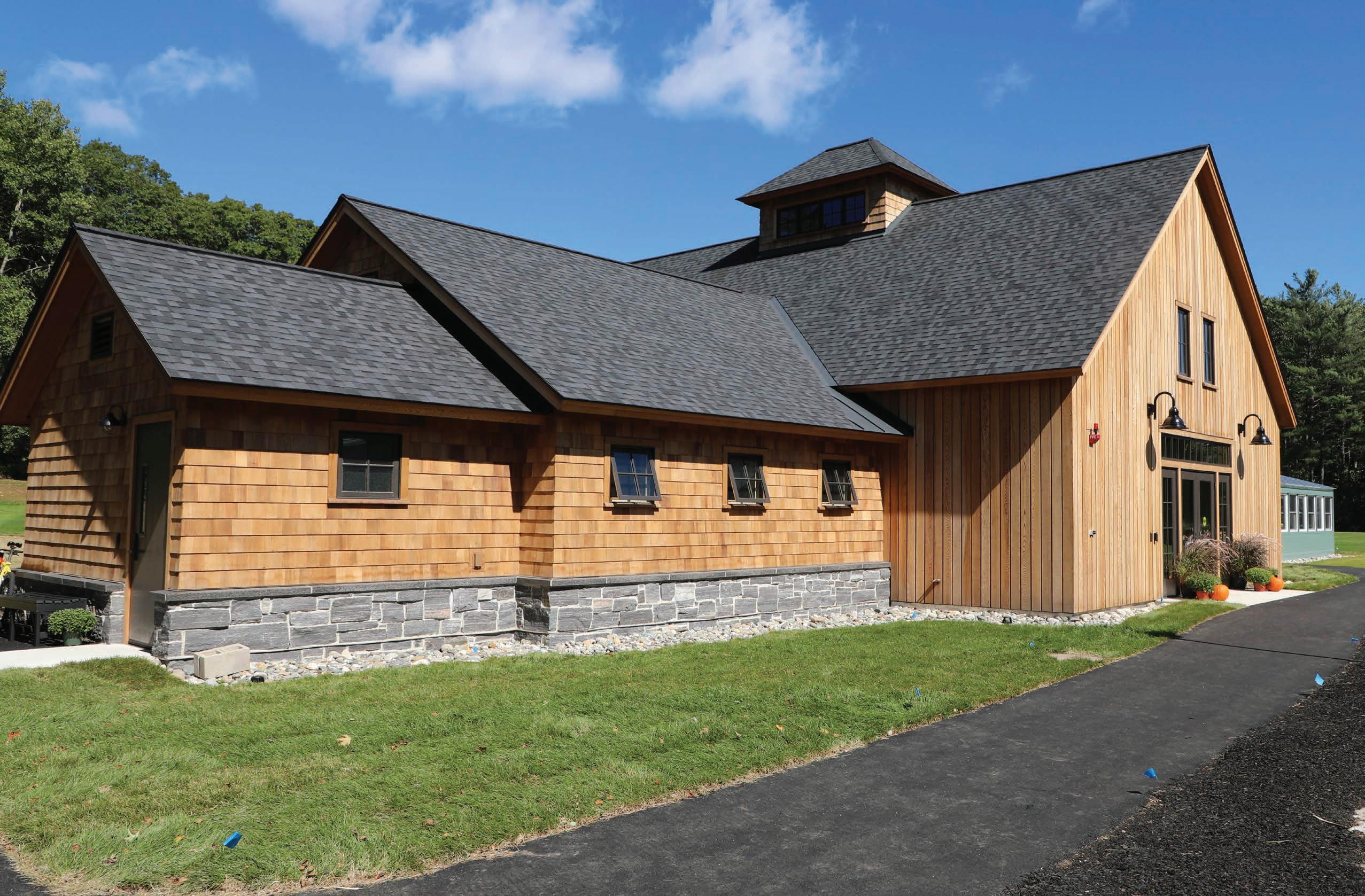

Alan McIntyre joined Proctor’s Science Department in 2004 and has taught AP Environmental Science and biology while serving as Proctor’ Environmental Coordinator for the past 15 years. Starting in the fall of 2022, Alan stepped into the role of Science Department Chair (a big thank you to outgoing chair Buz Morison for his service to the school for the past decade). Alan takes over leadership of the department during an incredibly exciting time for the school with the opening of the Proctor Woodlands Building and continued evolution of the science curriculum.
Alan notes, “The outdoors has it all. Direct interaction with life, whether it is witnessing a woodpecker nest in a tree, knowing a striped maple versus a sugar maple or the history entangled in a wolf tree in our woodlands, that knowledge expands our understanding of self, community and planet. This form of understanding, this seeing of interactions and relationships is often called eco-literacy. I strongly believe that students that learn the skills of eco-literacy will be better suited for solving problems and asking questions.” He adds, “The Woodlands building features an indoor heated greenhouse, which will give us a deeper and more meaningful understanding of the power of plants. Because of this facility, our learning community will be able to purposefully explore the science and skills that are coupled with fields like agriculture, silviculture and ethnobotany. Understanding plant ecology is vital for understanding our past, present and future with a changing climate. By learning skills from basic plant identification to regenerative practices to enhance ecological services our science students will be able to expand their understanding.”
If you ever find yourself on campus, please stop into the science department in Shirley Hall or wander over to the Woodlands Building to see Proctor’s young scientists in action!
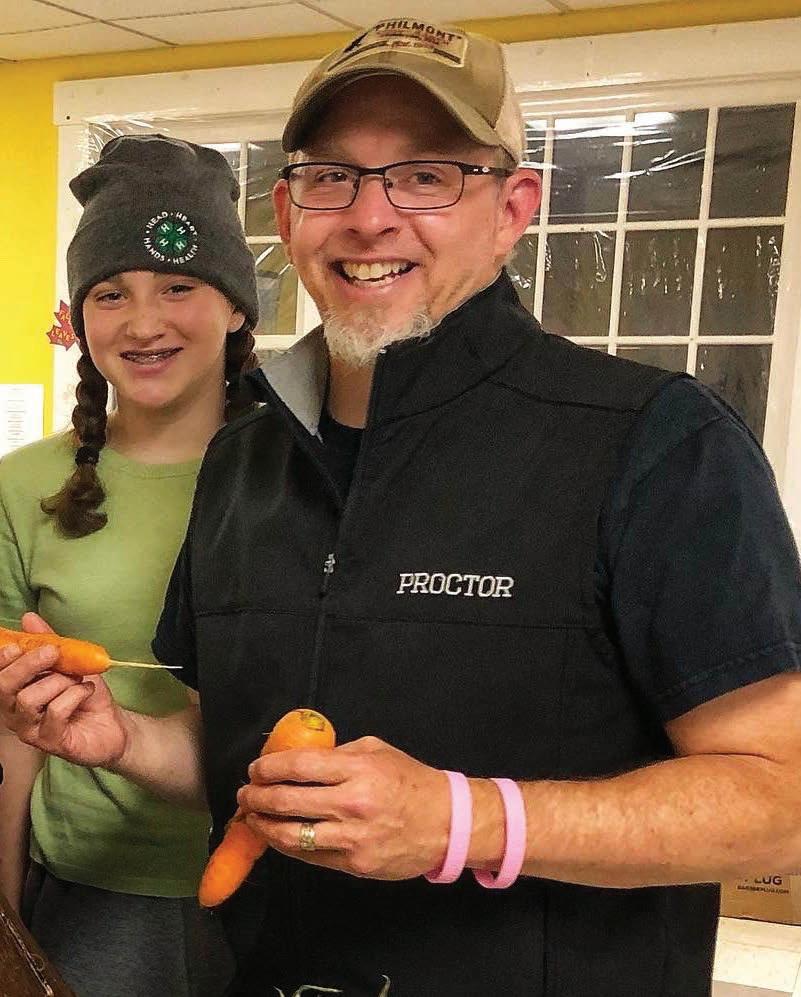
EVOLUTION OF THE ARTS AT PROCTOR Performing Arts and Visual Arts
The arts afford an unparalleled opportunity for students and adults to join together in the creative process of experimentation, failure, refinement, more failure and adjustments before a final product is put forth for community viewing. As educators, we know well the role risk-taking plays in the learning process for adolescents, and nowhere is that process more visible than in the arts.

At the end of each trimester, art performances and an art show place the creative process on display for the community. Hundreds of eyes watch the stage, examine the piece of artwork, and yet this is where we see the beauty of an authentic
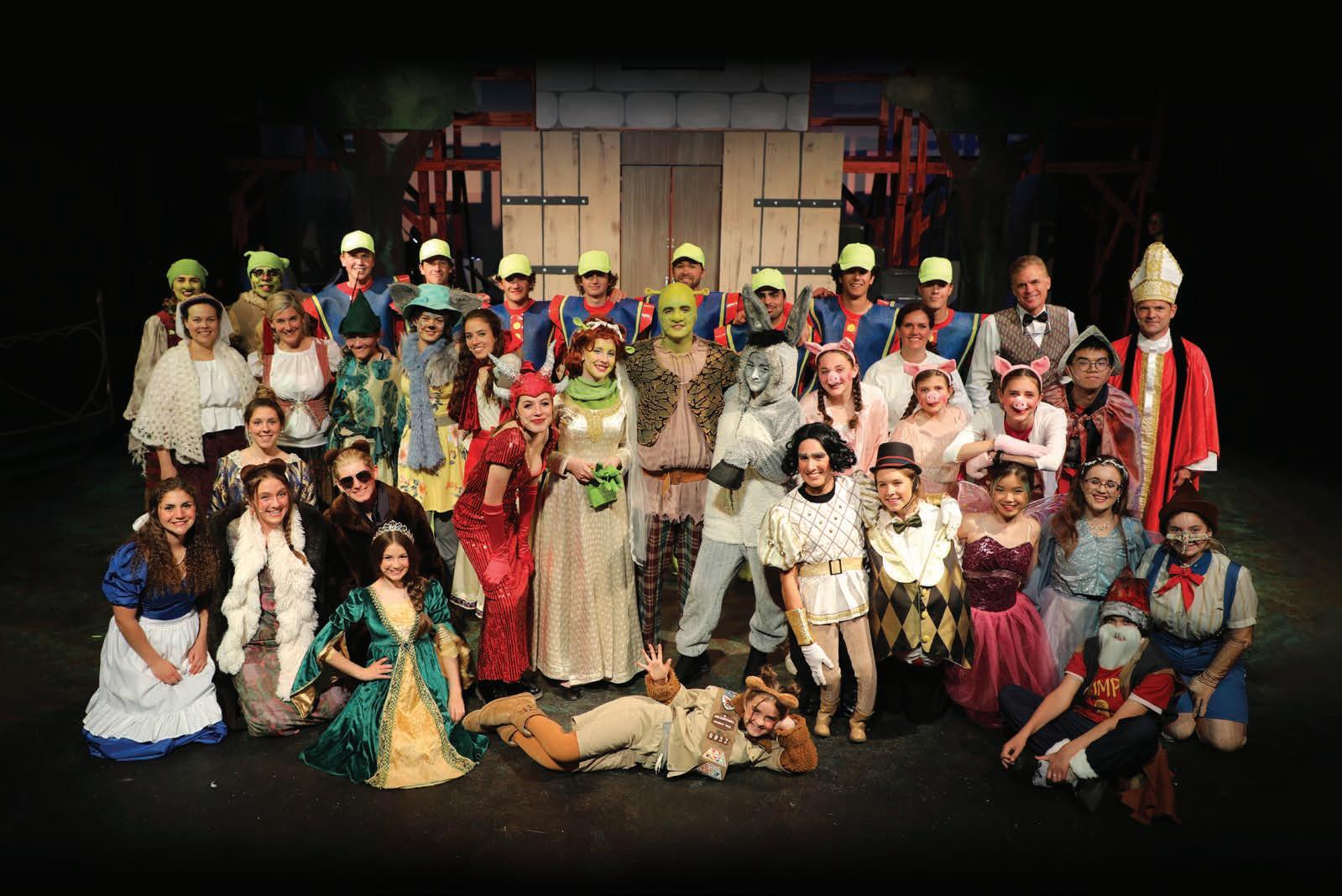
A Community Wide Production:
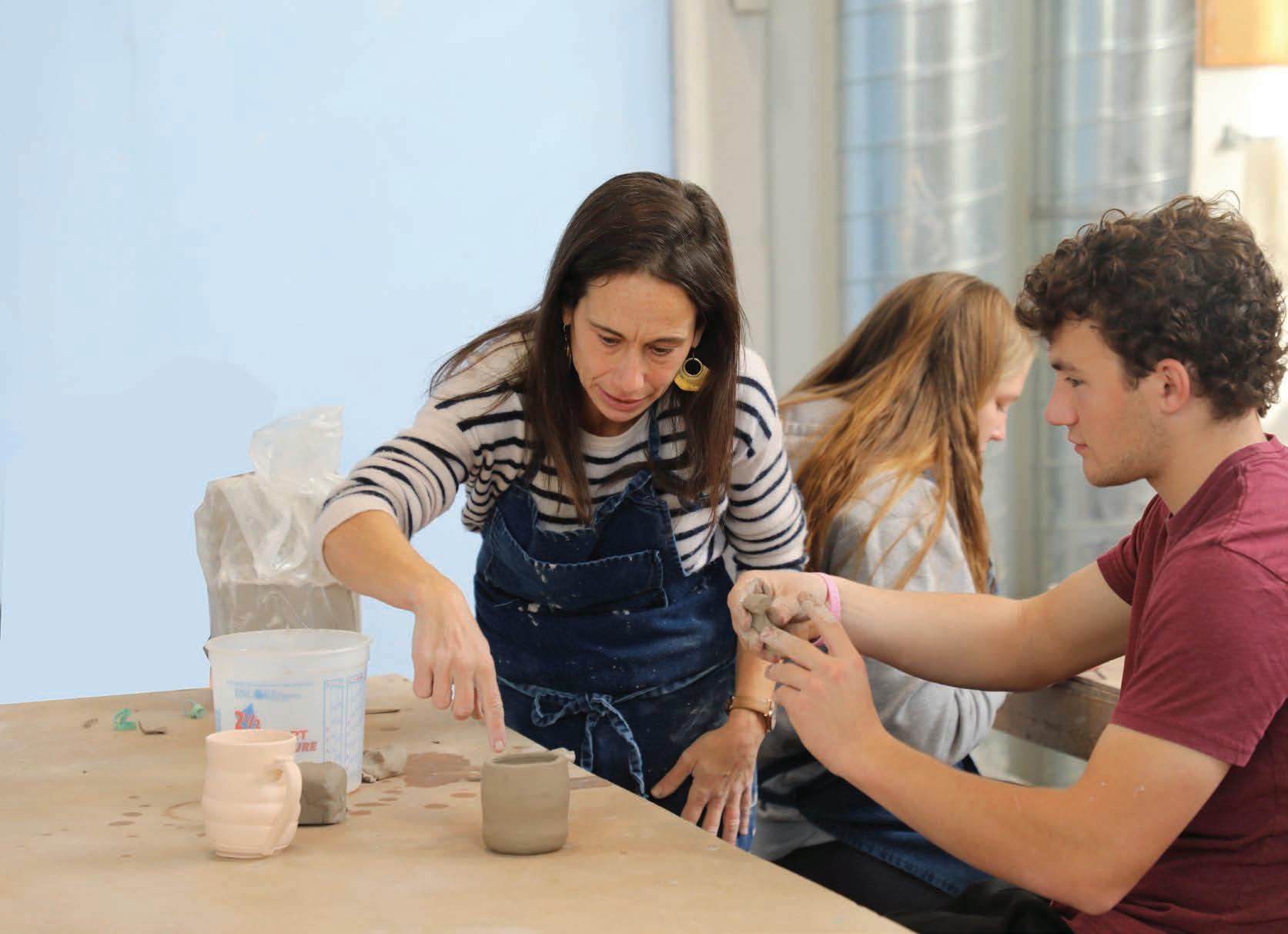

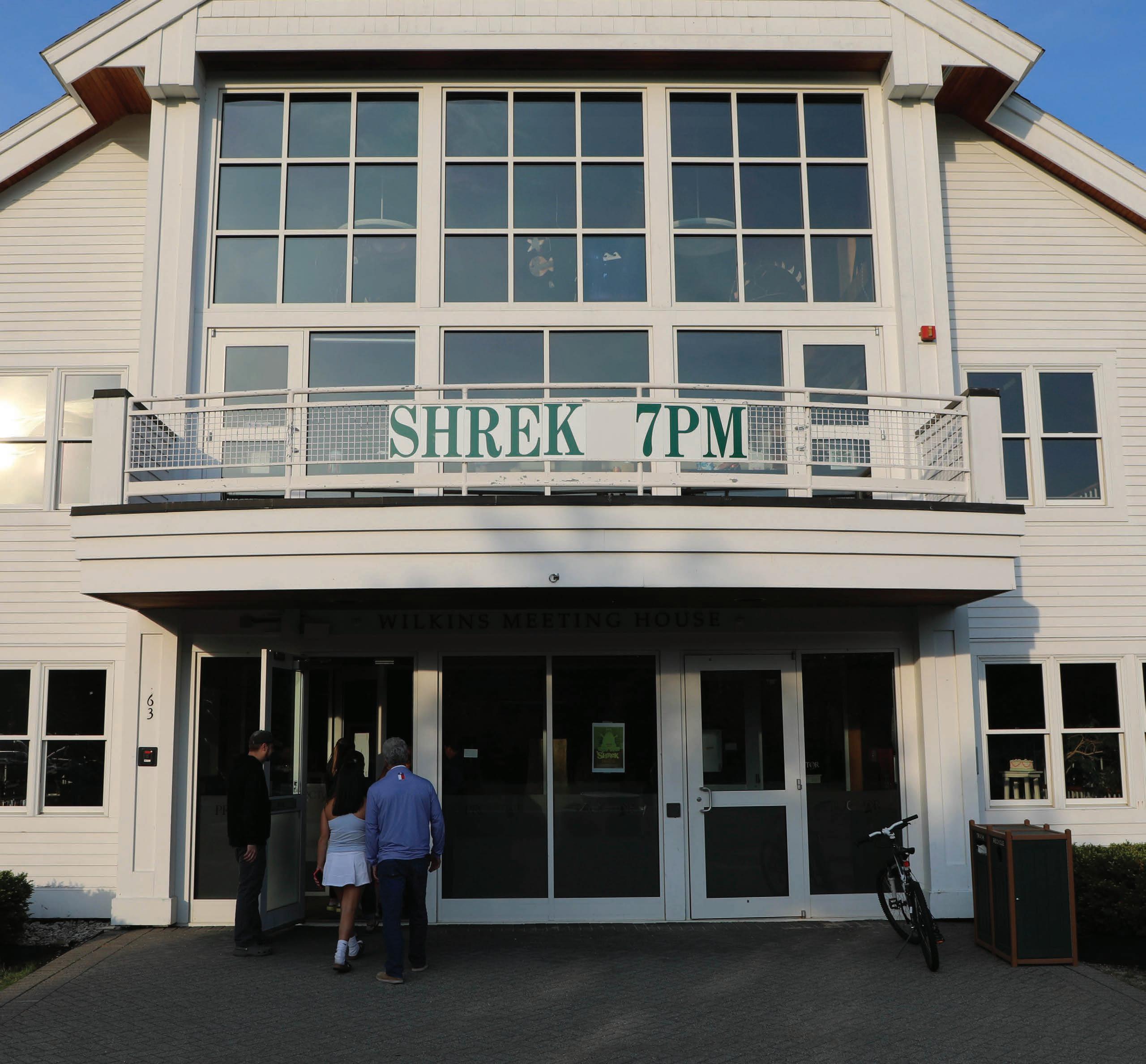

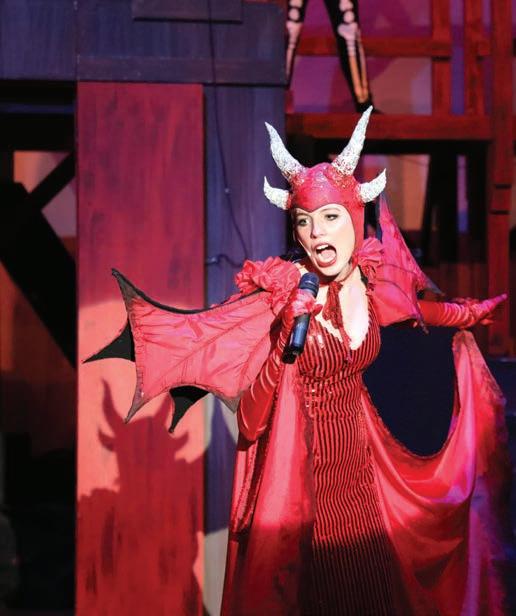
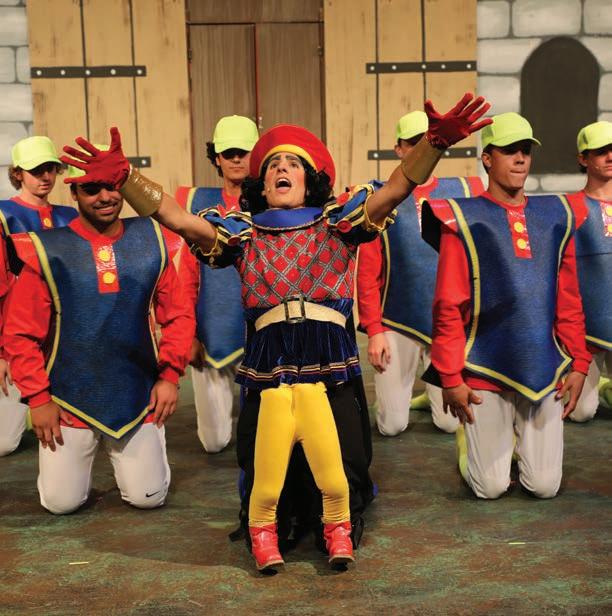
We believe in the importance of doing life alongside our students. Sometimes that includes acting, singing, and modeling how to be a novice at something. From faculty and staff (and their children) playing key roles in the show to our Head of School Brian Thomas making a cameo as Shrek’s father in the opening scene to a talented cast of students from all corners of campus, Proctor Drama’s production of Shrek! The Musical was truly a community-wide performance.
A well-known show filled with humor, references to other musicals and fairy tales throughout, Shrek! The Musical made us laugh, smile, and applaud in awe of the diverse talent that lives within the Proctor community. Calvin Monfried ‘23 (Lord Farquaad) had us laughing harder than we have in years, while Abba Ramsey ‘22 (Donkey) and Helen Armstrong ‘23 (Fiona), Campbell Keith ‘25 (Dragon), and a whole host of ensemble talent were amazing in their roles. The show would not have happened without alum Tahg Healey ‘21 returning to campus from the University of California - Berkeley for the last month of the school year to play Shrek. Tahg, thank you for your commitment and willingness to share your talents with us!
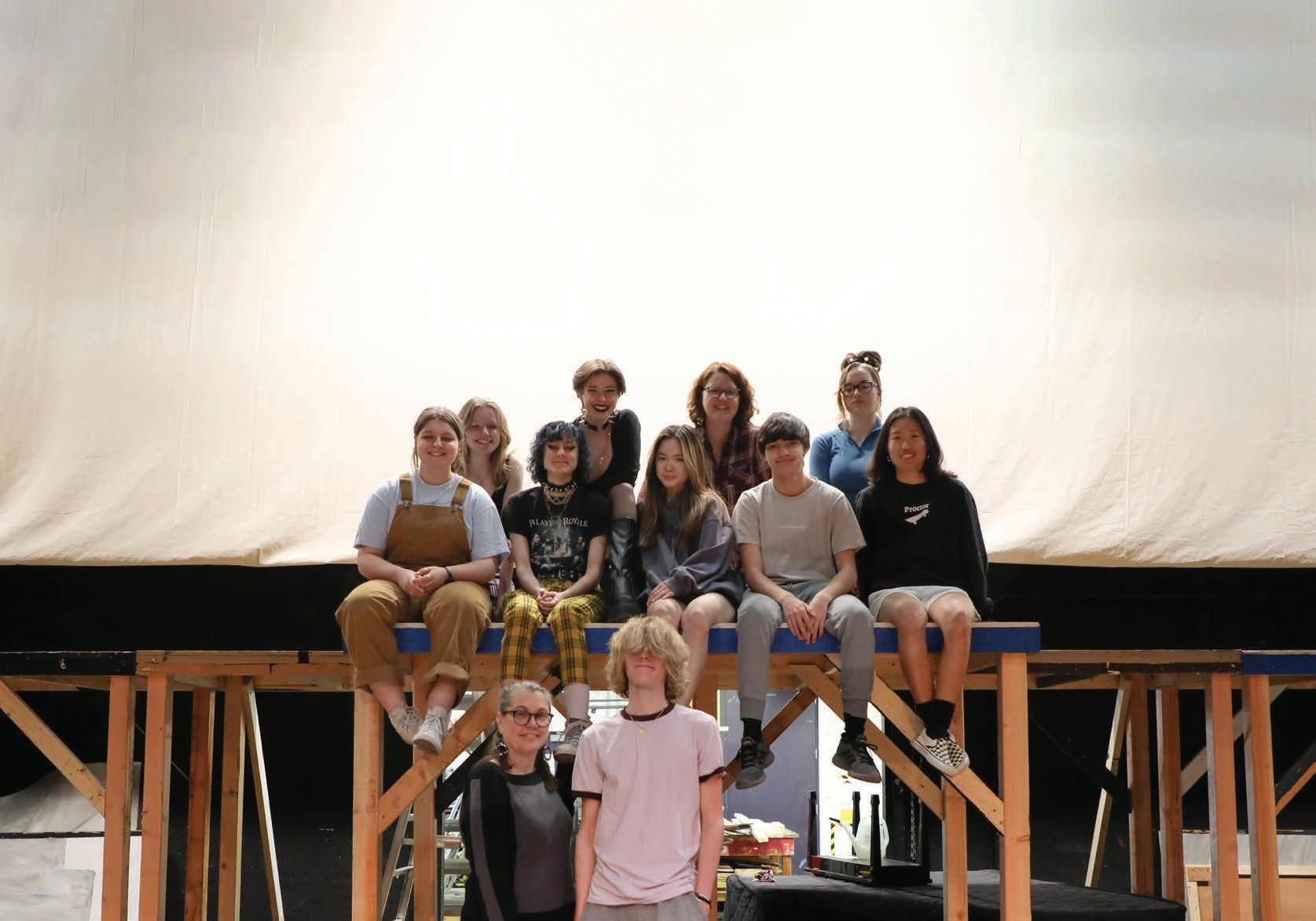
Like any great show, the work of the Drama Tech team was critical to a successful production as they tirelessly supported the show through scene changes, lighting, and sound to run like a professional operation. Relive highlights from the show on Proctor’s blog The Buzz: www.proctoracademy.org/shrek. learning process unfold with our students - both with those whose work is on display and those observing the art. These performances and exhibits are not about perfection; they are about understanding, valuing, and appreciating the process. When Scott ‘25 stepped in front of the microphone for his first solo vocal performance at the winter Jazz/Rock Ensemble performance, he took one of the biggest risks of his young life. His performance was tremendous, but not perfect. And yet in the eyes of those in attendance, perfect pitch was not on the rubric of assessment. Everyone in the audience recognized the bravery it took to do what he did and celebrated this step in the process alongside him.
We are all works in progress, all at different stages of development, all seeking to become better versions of ourselves. It is in this vein that Proctor split the Arts Department into a department for Performing Arts and for Visual Arts. Their work will remain inextricably rooted in a shared appreciation for the creative process and desire to engage young people in art classes and afternoon programs. Each department will evolve in unique ways over the coming year under the leadership of interim department chairs Starr Fair (Performing Arts) and Molly Leith (Visual Arts), and we cannot wait to see how this evolution in departmental structure allows for the future development of student experiences in the arts.
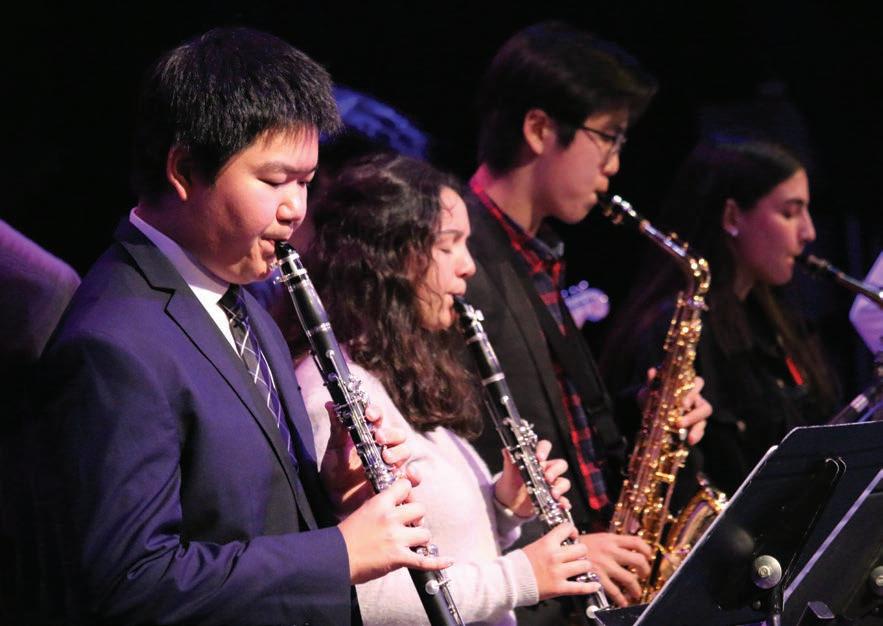
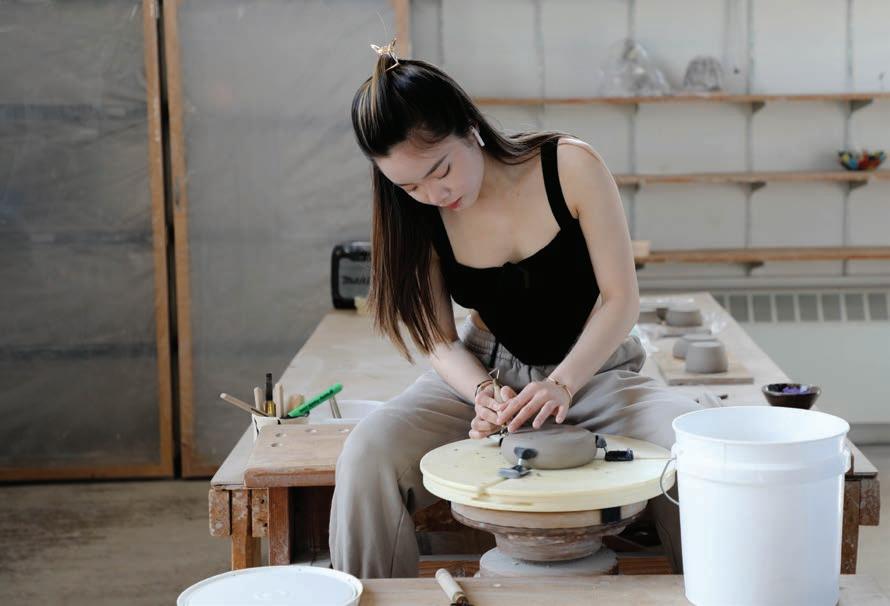
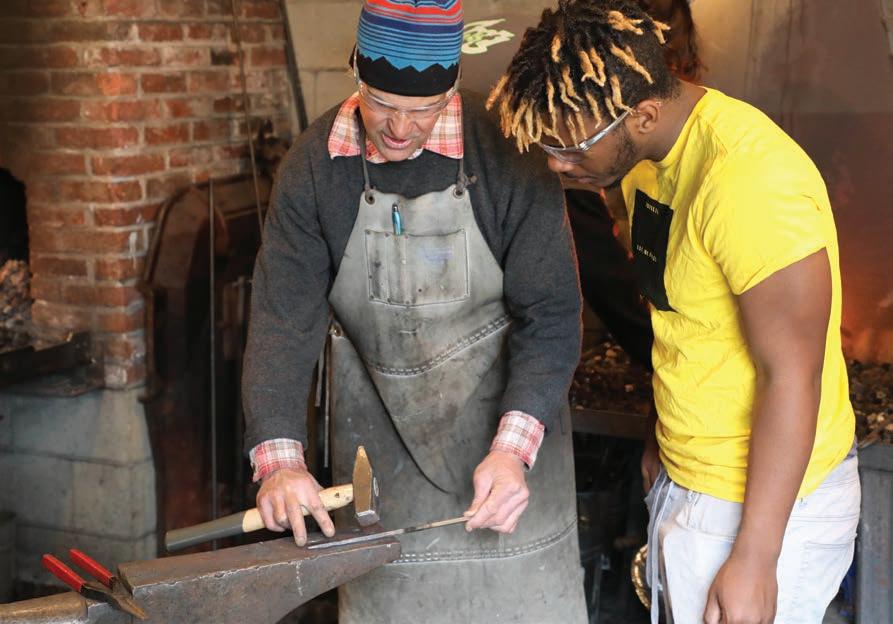
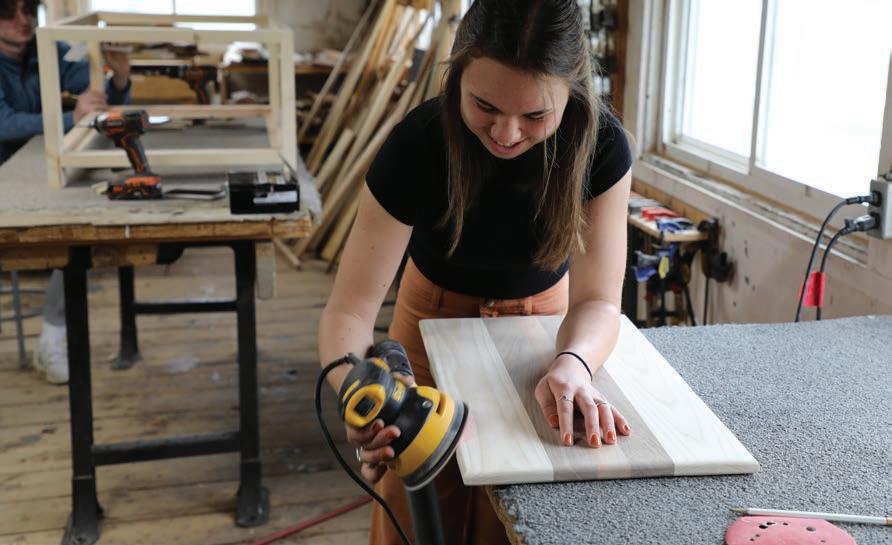
This evolution in departmental structure in the Arts at Proctor serves as an exciting opportunity for the Visual Arts department to really analyze our unique assets, individually and collectively, and to explore new opportunities with greater effectiveness as a team. Our hope is to amplify what we do well while empowering each of us to explore and invest in what keeps us inspired. Authentically engaging and inspiring the students, creating unique opportunities for them to process, experiment with and explore their creative potential is critical to a thriving learning environment, especially during challenging times.
- Molly Leith
Interim Visual Arts Department Chair
The Performing Arts give students the opportunity to explore who they are and find their unique voice, all while learning real-world skills. Whether on or back stage, the exploration of history, culture, and identity through music, theater, and filmmaking, to name just a few disciplines, allows students the chance to connect with themselves and others in a new way. With the creation of a Performing Arts Department, Proctor underscores the importance of these activities, classes, and skills for our students. Our focus will be creating a wide breadth of performance options in and out of the classroom, and inviting and encouraging all students to join in, not just those who see themselves
as a musician, dancer, or actor. - Starr Fair P’19 Interim Performing Arts Department Chair




